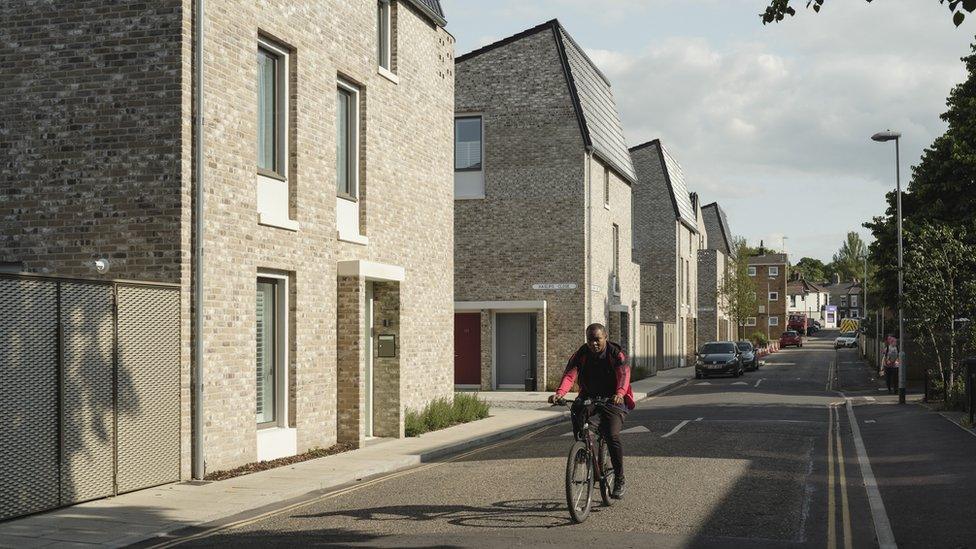Norwich eco-home residents' relief over lower bill costs
- Published
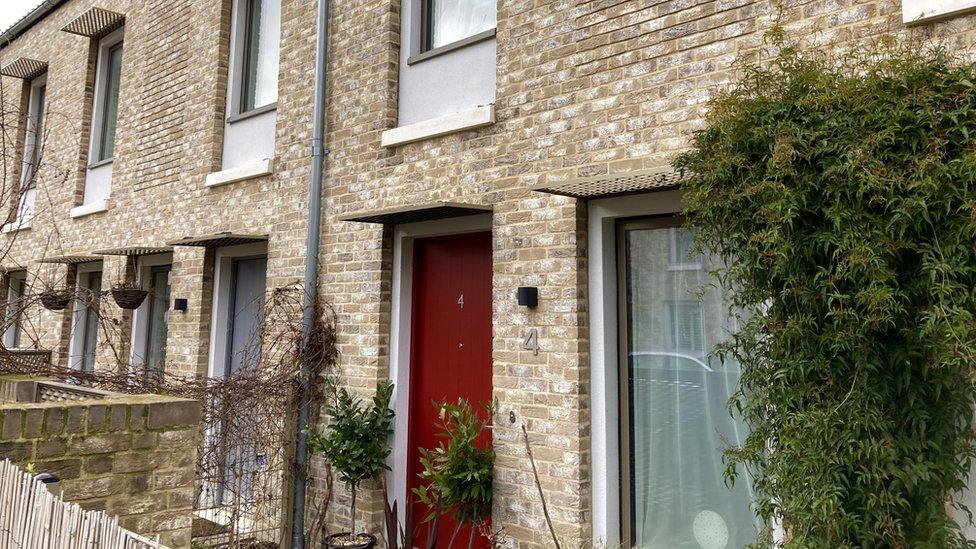
Energy efficient passivhaus were completed in Norwich in 2019 for 93 families
We all know we are going to be paying a lot more for our gas and electricity from now on, but one way to keep costs down is to make sure your home is as energy-efficient as possible.
And for a couple living in a prize-winning development in Norwich, the benefits of a building that uses the minimum amount of energy could not be more financially timely.

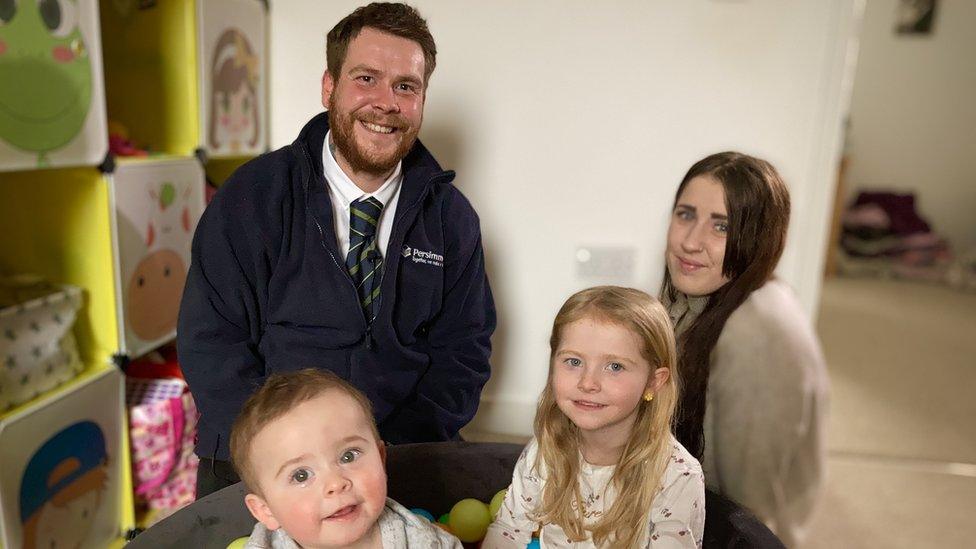
Louis Brown and his partner Chloe Smith with their children live in an eco-home know as a passivhaus
Chloe Smith, Louis Brown and their young family live in one of 93 ultra-low energy homes funded by Norwich City Council for people on lower wages.
The houses and flats in Goldsmith Street were built to passivhaus standards and won the Riba Stirling architecture prize in 2019 for the best new buildings in the UK.
Passivhaus, or eco-houses, are built with the focus on the highest possible standard for energy efficiency.
They were constructed with thick walls and triple glazing designed to retain heat and harness the sunlight for warmth.
A fan system extracts warm, damp and stale air from the house and supplies fresh dry air from outside.
A heat exchanger transfers most of the heat to the fresh air so that there is very little heat lost in the process.
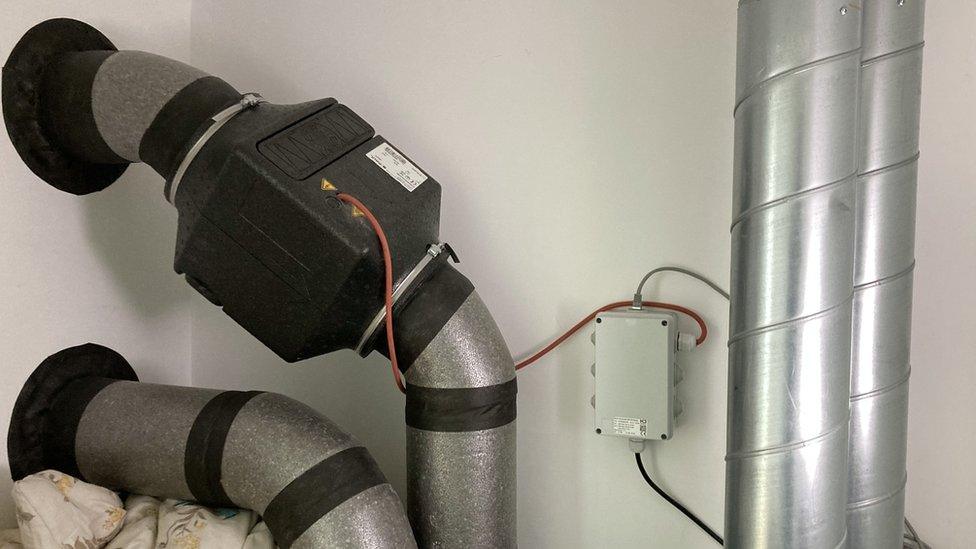
Fresh air is drawn in from the outside and mixed with warm air from inside the house before being recirculated
"It's lovely, always warm, the heating is rarely on, it's brilliant with the heating and the electricity," said Ms Smith.
On a cold winter's day, she only has to put the heating on for about an hour. So what does she make of the rise in energy prices?
"I do feel really lucky. We obviously haven't got that worry," she said.
Her home only has two radiators to heat the whole house.
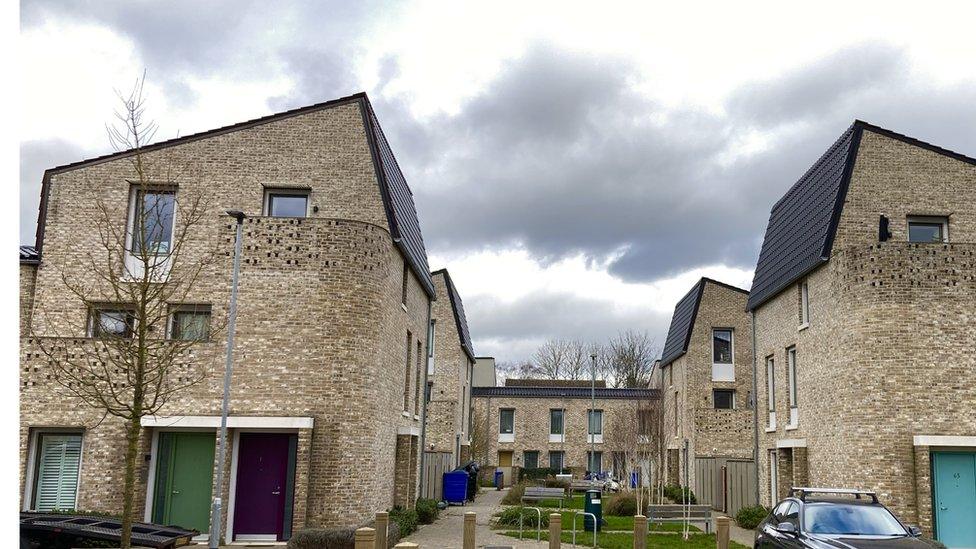
The homes' rooves are designed to reflect sunlight on to windows to heat the interiors
"Obviously it's not nice knowing the energy bills are going to be going up. It's not nice that some people can't afford much at the moment," said her partner, Louis Brown.
"Living here means our bills will be cheaper."
The family chose to use payment meters to top up their consumption, as it helps them to keep financial control.
"We like to do it that way because we know what we're spending," said Mr Brown.
They spend roughly £30 a week on gas and electricity but come summertime, that reduces to "not much at all", just enough to cover hot water for baths, showers and washing-up.
The total cost of their annual energy bills is about £1,000.
He said everyone should be able to live in a house like his, and while expensive to build "they are nice homes, they're warm, they're cheaper to run".


Kier and Pete Osborne say they only turn on the heating for 10 minutes a day in winter
Kier Osborne, 32, and her husband Pete, 36, have lived in their one-bedroom flat on the development for two years.
"We love it. It's absolutely amazing. When you close the windows in here and the sun is shining it feels like summer, even though its winter," said Mrs Osborne.
The couple both have health issues, which means they have to live in a warm house. The thermostat in the property is set to 22C (72F).
She said in the winter they have the heating on "for five minutes in the morning and five minutes in the evening" but said if you were a fully healthy person, "you wouldn't really need to use heating".
The flat has one radiator and a heated towel rail.
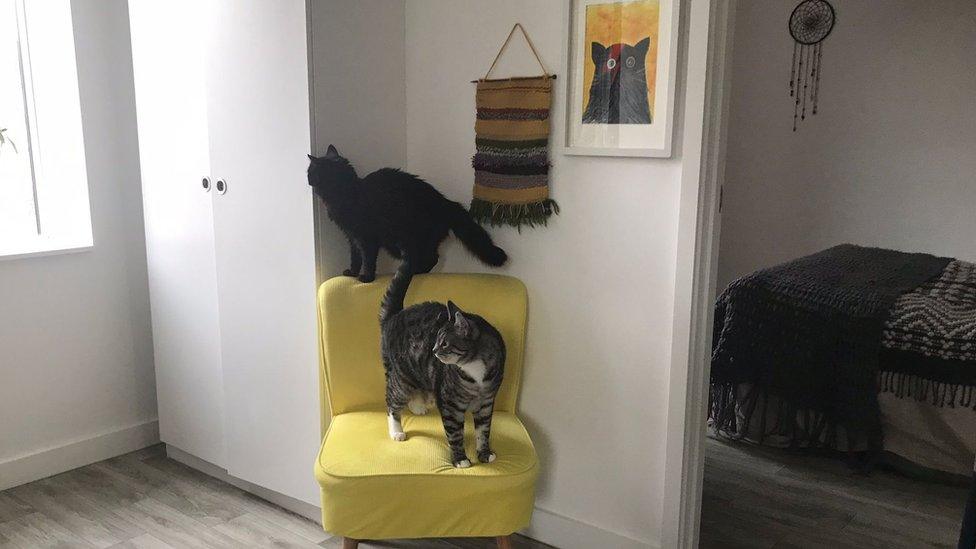
Kier and Pete Osborne said they were extremely "grateful" to live in their low energy council-owned flat
The couple currently spend about £30 each month on energy bills and this will increase to £78 from April.
Before moving into their flat, they lived in a rented Victorian conversion, and paid about £50 each month for energy costs.
"I'm aware £78 isn't a lot compared to what I've heard from my family and friends," she said.
"Pete's parents' bill has gone up to £200 a month. We're so grateful that ours [bills] haven't.
"The £78 is going to be really difficult for us to pay."
The couple said they will "just" be able to afford the price rise and will have to spend less money on food as financially things were already tight.
"I think that's a position lots of people are already in," she added.
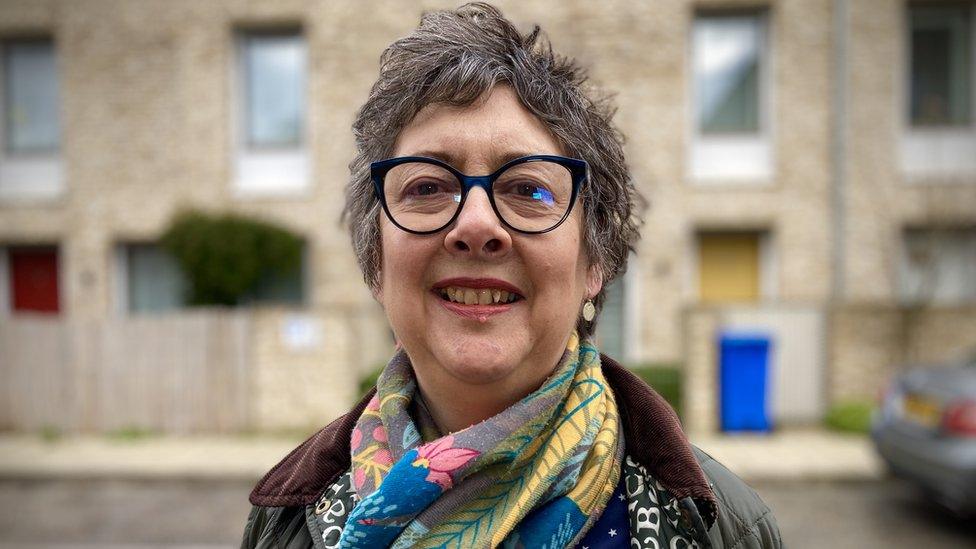
Deputy leader of Norwich City Council, Labour's Gail Harris said the authority was committed to building low-energy housing
The 93 properties cost Norwich City Council £17m to build, and with energy bills spiralling, the authority said it was money well-spent.
Deputy leader of Norwich City Council, Labour's Gail Harris, who is also a cabinet member for social housing said: "Sometimes people are having to make the choice between eating and heating so these [homes] are incredibly crucial."
Ms Harris said the council had "learnt a lot" from the Goldsmith Street properties.
"They can be expensive to build and not all sites are suitable," she said.
"We've got lots of development going on at Bowthorpe. Some of that is passivhaus, with others built to a really high environmental standard.
"We can now build on passivhaus principles, we know what works and what makes a difference to people," she said.
"That's what we've got to do, strive towards the best quality homes we can."
Norwich City Council has programmes in place to help those struggling with their rising energy bills, the councillor added.

Find BBC News: East of England on Facebook, external, Instagram, external and Twitter, external. If you have a story suggestion email eastofenglandnews@bbc.co.uk, external
Related topics
- Published12 February 2022
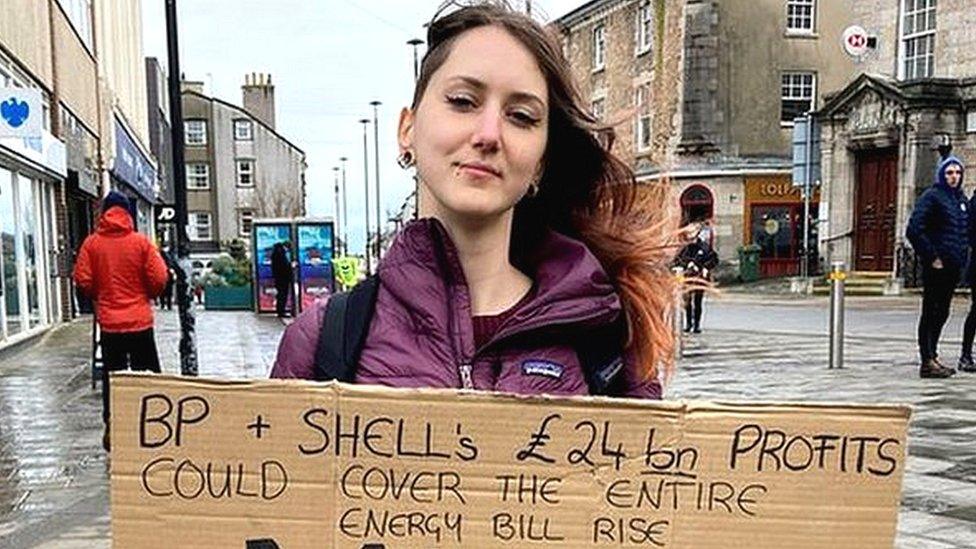
- Published9 February 2022
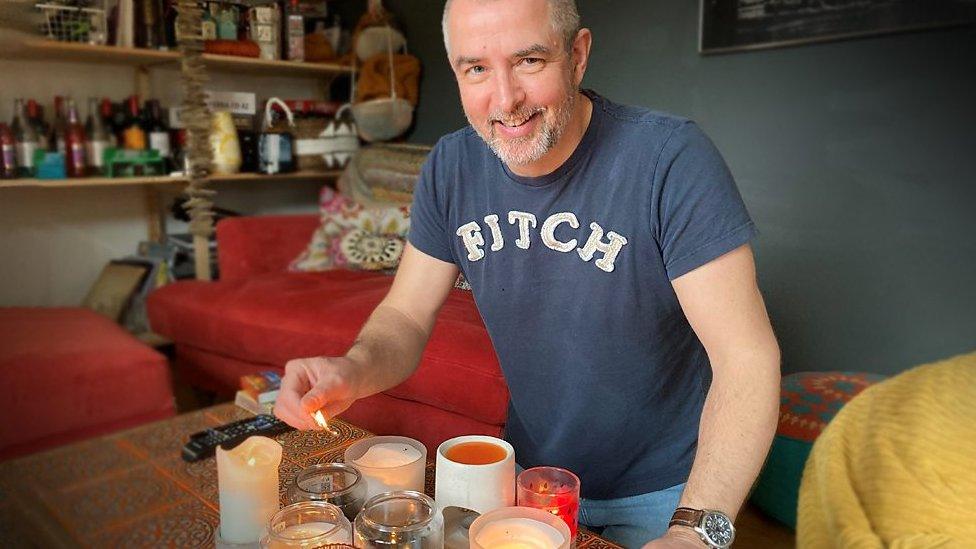
- Published10 February 2022

- Published9 October 2019
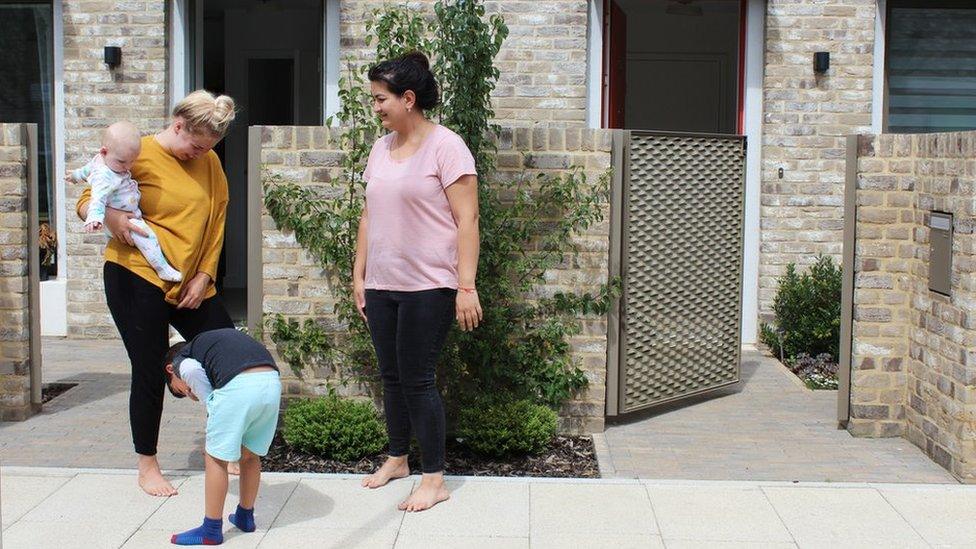
- Published1 November 2019
